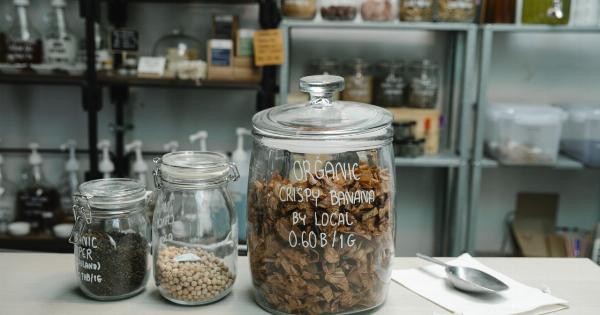Nasal congestion is a common condition that affects people of all ages. It refers to the blockage of the nasal passages due to swelling of the nasal tissues. This can lead to difficulty in breathing through the nose, discomfort, and even headaches.
While there are various remedies available over the counter, one often overlooked solution is the use of bitter substances. In this article, we will explore the potential benefits of incorporating bitterness into our daily routine as a critical countermeasure against nasal congestion.
Understanding Nasal Congestion
Before delving into the potential benefits of bitterness, it is essential to understand the causes and symptoms of nasal congestion.
Nasal congestion can be caused by a variety of factors, including allergies, common cold, sinus infections, and even structural abnormalities in the nose. Symptoms of nasal congestion may include a stuffy or runny nose, sneezing, sinus pressure, and difficulty in breathing.
How Does Bitterness Help?
While bitter substances don’t directly cure nasal congestion, their unique properties contribute significantly to alleviating the symptoms and promoting relief.
Bitter substances have been used for centuries in traditional medicine systems, such as Ayurveda and Traditional Chinese Medicine, to address various health conditions, including nasal congestion. These substances stimulate certain taste receptors in the mouth, which in turn triggers various physiological responses in the body.
Stimulating Secretions
One of the mechanisms through which bitter substances combat nasal congestion is by stimulating the production and secretion of mucus. Mucus plays a vital role in keeping the nasal passages lubricated and trapping potential allergens or irritants.
Bitter substances, when ingested or inhaled, stimulate the glands responsible for mucus production, thus promoting better clearance of nasal passages.
Reducing Inflammation
Inflammation of the nasal tissues is a significant contributor to nasal congestion. Bitter substances contain compounds with anti-inflammatory properties, which help reduce the swelling and inflammation of the nasal tissues.
This results in improved airflow through the nasal passages and a decrease in discomfort associated with nasal congestion.
Clearing Sinuses
Bitter substances can also aid in clearing the sinuses, which is crucial for individuals suffering from chronic nasal congestion or sinusitis. Sinus cavities can become blocked due to excessive mucus production or inflammation.
Bitter substances help thin the mucus and promote its effective drainage, reducing sinus pressure and congestion.
Bitter Substances for Nasal Congestion Relief
There are several bitter substances that can be incorporated into your daily routine to alleviate nasal congestion:.
1. Bitter Melon
Bitter melon, scientifically known as Momordica charantia, is a vegetable with a distinctly bitter taste. It is rich in antioxidants and has been traditionally used to relieve nasal congestion and improve respiratory health.
2. Turmeric
Turmeric is a spice commonly used in cooking, especially in Indian cuisine. It contains the compound curcumin, which possesses strong anti-inflammatory properties.
Incorporating turmeric into your diet or consuming it as a supplement may help reduce nasal inflammation and congestion.
3. Gentian Root
Gentian root, derived from the Gentiana lutea plant, is a well-known bitter herb used in herbal medicine. It stimulates the production of digestive secretions, including mucus, which indirectly aids in nasal congestion relief.
4. Goldenseal
Goldenseal is a perennial herb native to North America and is commonly used as a natural remedy for various ailments. It contains berberine, a bitter compound with antimicrobial and anti-inflammatory properties that can help alleviate nasal congestion.
5. Andrographis
Andrographis paniculata, also known as the “King of Bitters,” is an herb used in traditional Ayurvedic medicine for its immune-boosting and anti-inflammatory properties. It may help reduce nasal congestion and associated symptoms.
6. Neem
Neem, scientifically known as Azadirachta indica, is a bitter tree native to the Indian subcontinent. It is widely renowned for its antibacterial, antiviral, and anti-inflammatory properties.
Incorporating neem into your daily routine may help alleviate nasal congestion and enhance overall respiratory health.
7. Fenugreek
Fenugreek, commonly used as a spice in Indian cuisine, is also recognized for its bitterness. It contains mucilage compounds that help soothe nasal irritation and reduce congestion.
8.
Green Tea
Green tea contains various bitter compounds, such as catechins and polyphenols, which possess anti-inflammatory and antioxidant properties. Consuming green tea regularly may promote nasal health and reduce congestion.
9. Quassia
Quassia is a bitter herb derived from the bark of the Quassia amara tree. It has long been used as a natural remedy for digestive disorders, but its bitter properties may also contribute to relieving nasal congestion when incorporated appropriately.
10. Chamomile
Chamomile is an herb known for its calming properties and gentle bitterness. In addition to promoting relaxation, chamomile can also help reduce nasal inflammation and congestion.
Conclusion
While bitter substances may not be the first remedy that comes to mind when tackling nasal congestion, their potential benefits cannot be ignored.
The stimulation of secretions, reduction of inflammation, and clearing of sinuses make bitter substances a critical countermeasure against nasal congestion. Incorporating these substances into our daily routine, whether through diet, supplements, or herbal remedies, may provide much-needed relief and improve overall respiratory health.





























